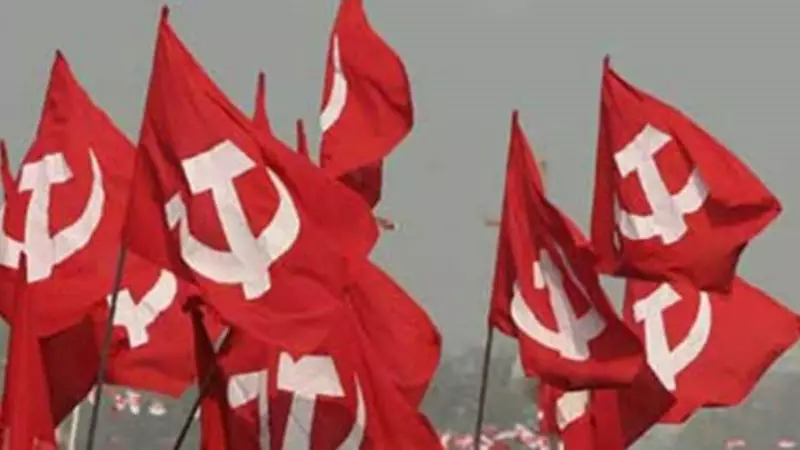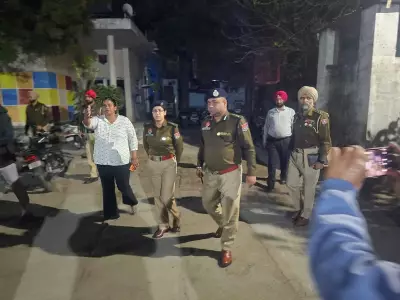
In a significant political move, the Communist Party of India (Marxist) has announced an extensive 1000-kilometer march across West Bengal to rejuvenate its political presence ahead of the crucial 2026 Assembly elections. The 'Bangla Bachao Yatra' (Save Bengal March) comes at a time when the party is striving to shed its 'zero tag' after failing to win a single seat in recent state and national elections.
Massive Political Mobilization Strategy
The 19-day yatra will commence on November 29 from Tufanganj in Cooch Behar district and conclude on December 17 at Kamarhati in North 24 Parganas. The march will be led by senior party leaders including Md Salim and Sujan Chakraborty, with participation from emerging young leaders like Minakshi Mukherjee.
The route has been strategically designed to cover 11 key districts where the party maintains organizational strength. These include Jalpaiguri, Darjeeling, Uttar and Dakshin Dinajpur, Malda, Murshidabad, Nadia, Hooghly, Howrah, and North 24 Parganas. Multiple smaller yatras from neighboring districts will converge with the main procession, creating a wave of political mobilization across the state.
Dual Strategy: Electoral Revision and Public Outreach
The timing of the yatra coincides with the Election Commission's Special Intensive Revision (SIR) of electoral rolls in West Bengal. The CPI(M) has deployed 35,748 Booth Level Agents (BLAs), positioning itself as the third-largest party in terms of electoral ground presence after the ruling Trinamool Congress (54,310 BLAs) and the principal opposition BJP (48,653 BLAs).
Beyond the formal electoral process, party cadres are actively organizing daily camps to assist citizens with SIR form filling. In areas where physical presence is challenging due to organizational weaknesses or ruling party oppression, the CPI(M) is leveraging digital platforms like WhatsApp to provide necessary information and support.
Comprehensive Political Agenda
CPI(M) state secretary Md Salim emphasized that the yatra aims to highlight pressing issues affecting Bengal's population. "This statewide march will highlight the pressing issues faced by the people of West Bengal and reaffirm the party's commitment to democratic values, social justice, and people's rights," Salim stated.
The party has identified multiple critical issues to address during the yatra, including:
- Protection of voting rights and democratic institutions
- Preservation of schools and healthcare centers
- Relief for microfinance loan victims
- Support for beedi workers and MGNREGA beneficiaries
- Rights protection for migrant and gig workers
- Women's safety and empowerment
Salim directly targeted both the TMC state government and BJP-led central government, stating, "From education to employment, from healthcare to women's safety, every pillar has been hollowed out. This yatra is our pledge to restore dignity, rights, and democracy."
Road to Political Redemption
The Bangla Bachao Yatra represents a crucial effort by the CPI(M) to reverse its dramatic political decline in West Bengal. Once the unchallenged ruling force from 1977 to 2011, the party has experienced a steep fall in electoral fortunes.
The statistics reveal the severity of the decline: The CPI(M)-led Left Front secured 39% of the vote in 2011, with the CPI(M) alone accounting for 30%. By the 2021 Assembly elections, this had plummeted to just 4.73%. The party failed to win any seats in the 2019 and 2024 Lok Sabha elections and the 2021 Assembly polls.
A CPI(M) state committee member acknowledged the challenge, stating, "We are focusing on the upcoming Assembly elections. We are only concentrating on those areas where we can win. It is high time to remove the 'zero tag' label."
While the yatra is primarily a CPI(M) initiative, the party leadership has indicated that other leaders may join from different districts, though participation from other Left parties and ally Congress remains uncertain at this stage.
The 1000-km march represents the most significant grassroots mobilization effort by the CPI(M) in recent years, signaling the party's determination to reclaim its political relevance in West Bengal's increasingly competitive political landscape.






